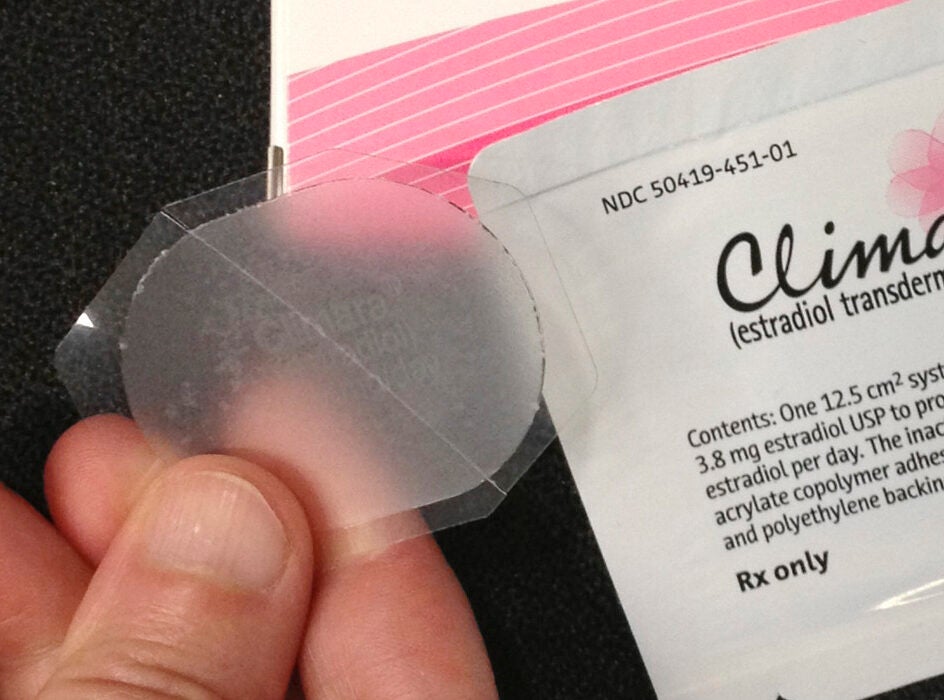Menopause has been getting a lot of attention in the media from some celebrities, according to Dr. Laura Bozzuto, the leader of UW Health’s Menopause Clinic in Madison.
That increased attention has come with unexpected consequences.
“Whenever there’s gaps in available information and resources, unfortunately, a lot of misinformation comes up,” Bozzuto told WPR’s “Wisconsin Today.”
News with a little more humanity
WPR’s “Wisconsin Today” newsletter keeps you connected to the state you love without feeling overwhelmed. No paywall. No agenda. No corporate filter.
Bozzuto has seen promotions for supplements and lifestyle changes that claim to help alleviate symptoms, but lack scientific evidence.
In an effort to combat misinformation, Wisconsin lawmakers are circulating a bipartisan bill in the state Capitol that would require health care providers to offer more education on menopause and the time leading up to it called perimenopause.
In an email asking for co-sponsors, Sen. Dianne Hesselbein, D-Middleton; Sen. Rachael Cabral-Guevara, R-Appleton; and Rep. Karen DeSanto, D-Baraboo, argue menopause and perimenopause are “often misunderstood and too often neglected or ignored.”
Under the bill, the state Department of Health Services would work with health care providers to create informational materials to educate patients and reduce stigma.
“The most important thing is high quality evidence that’s based in science,” Bozzuto said. “That not only tells people what’s happening, but what will happen with their health as they go through this transition.”
Bozzuto joined “Wisconsin Today” to discuss misconceptions and the latest research about menopause, perimenopause and this midlife transition.
This conversation has been edited for clarity and brevity.
RF: Give us a little menopause 101. What is happening at this life transition?
LB: The ovaries, as they age, are just less and less efficient at doing their job, which is making eggs for fertilization and making hormones including estrogen and progesterone. As the fertility declines, that coincides with a decline in estrogen, which is the main hormone that causes the symptoms of menopause.
So menopause is once the ovaries stop working and no longer ovulate eggs, and women haven’t had a period for 12 months. That is the definition of menopause. We can only know when someone’s had their last menstrual period once it’s already happened and 12 months have gone by.
Perimenopause is used to describe the time preceding that, when many women will experience some fluctuations in hormones as the ovaries are becoming less efficient at their job, and that can come with symptoms.
RF: What are some of the most common symptoms that women might experience?
LB: The average age of menopause in the U.S. is 51.5 years old. But there’s a range of normal times that people can go through menopause — anywhere between 45 and 55 can be normal.
Many people can experience some of these perimenopausal symptoms well before they have their last period, even in their 40s,
The most common symptoms that people experience are changes in their menstrual bleeding patterns. So some people’s periods might get closer together before they eventually become less frequent. Hot flashes are very common. Some sleep disturbances, night sweats are very common. Even some changes in mood can occur such as increased risks of depression, anxiety and irritability.
RF: VEOZAH (fezolinetant) is a non-hormonal therapy approved by the U.S. Food and Drug Administration in 2023. What is this non-hormonal therapy?
LB: This is a newer medication that targets the neurons in the brain that are affected by the changes in estrogen that occur with menopause.
It’s really great because researchers have found the causal area of these symptoms and a non-hormonal treatment that is very effective. For most women who start this medication, they have really significant improvement in symptoms even in just two weeks.
RF: Is this new medication becoming a first option for people? Or how does it compare to hormone-based treatments?
LB: For many women, we think about both hormonal and non-hormonal options and it really just becomes an assessment of what might achieve the best results for an individual and their own priorities.
There are certainly women for whom hormones are not recommended — someone who has a history of blood clots or bleeding problems or a history of cancer, for instance. So the non-hormonal options really open the door for women who can’t have hormonal treatments to still get good symptom relief.
RF: For people dealing with the side effects of menopause, are there lifestyle changes people can make?
LB: A lot of the lifestyle changes won’t actually help with the hot flashes or frequency that people get hot flashes, but they certainly can help with how bothered individuals are by them. So wearing layers, [using] fans, [losing] weight have been shown to improve some symptoms of hot flashes.
Cognitive behavioral therapy does have good evidence that it can help improve hot flashes and the bothersomeness that people experience from them.
RF: Bringing things back to this bill circulating in the state Legislature, the statement on it says menopause can be associated with stigma. How can we reduce the stigma around this perfectly natural life transition?
LB: It’s important to remember and realize that half of the population is going to experience this at some point and this is a natural process that happens just like puberty. But there’s no fourth grade health class for menopause, other than coming to your doctor with questions. Hopefully having more educational materials available will help.





